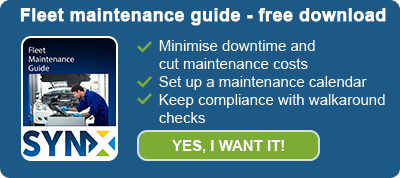What do drivers really think about this technology? Here is an interview with a seasoned haulage driver.
Age of interviewee: 55
Driving career: thirty years (five years continental driving to Germany, France, Spain, Belgium, Holland and Luxembourg—transporting mainly furniture and tyres, and twenty-five years driving nationally, on a daily basis—transporting construction material, including the occasional carriage of dangerous goods).
Vehicles driven: mainly HGV, tractor-trailers and articulated lorries.
“Do you know what vehicle tracking technology is, and did any of the companies you worked for use that technology?”
“Yes, I know, more or less, what vehicle tracking technology allows companies to do. I worked for one company transporting material for construction and I know one of the vehicles, I sometimes used, was tracked. This vehicle was transporting operating machines and I was responsible for bringing them to the construction sites.”
“Do you know what the main features of vehicle tracking are?”
“I realised these programmes can check your position at any time. So, they can help companies in detecting any misuse of vehicles and check if the employees are behaving correctly or not. This is the main feature I am aware of.”
“Do you find it inconvenient to be tracked, and what do you think about it?”
“Personally, not. I have never been called by my manager and told there was any problem with my job (I know other people who have been). The main thing is that if you do your job correctly, you do not have to worry if someone is tracking you. I am not worried if anyone is checking where I go at any time with company vehicles because I am always going where I have to. Sometimes it might take more time than usual because the routes where I travel to are in mountainous areas, meaning weather conditions can force you to keep gears low, slow down and consume more fuel. These same areas are very crowded during the ski season as well: there is a lot of additional road traffic due to snow and ice. But in the areas where I work there is no good alternative. You just cannot choose a different route. I am pretty sure if my manager knows I am slightly late back, and checks the route where I travelled to, he will understand. Or he will leave more margin for me to complete the task and plan schedules in a realistic way.”
“Do you know about some of your colleagues that have actually been ‘called’ by their manager?”
“I know that some people used company vehicles for personal use at the weekend; they had to go somewhere on a Monday, for instance, and it was close to a place where they wanted to spend the weekend. But I am well aware some vehicles cannot circulate on weekends and you can lose your job and your driving licence. I don’t think it’s worth it just to spare some fuel or not use your car.
I heard other people found tricks to alter tachographs, or resell fuel they purchased on the company’s behalf (or use it for personal vehicles). But I would not define this behaviour as smart. Fuel station staff are very familiar with people on the road, and I also think that if you ever try to cheat the technology (apart from it not being ethical) it will only be discovered at some point. You can lose your manager’s confidence, putting your career at risk and your driving licence—both as a working driver and as a ‘normal’ road user.”



